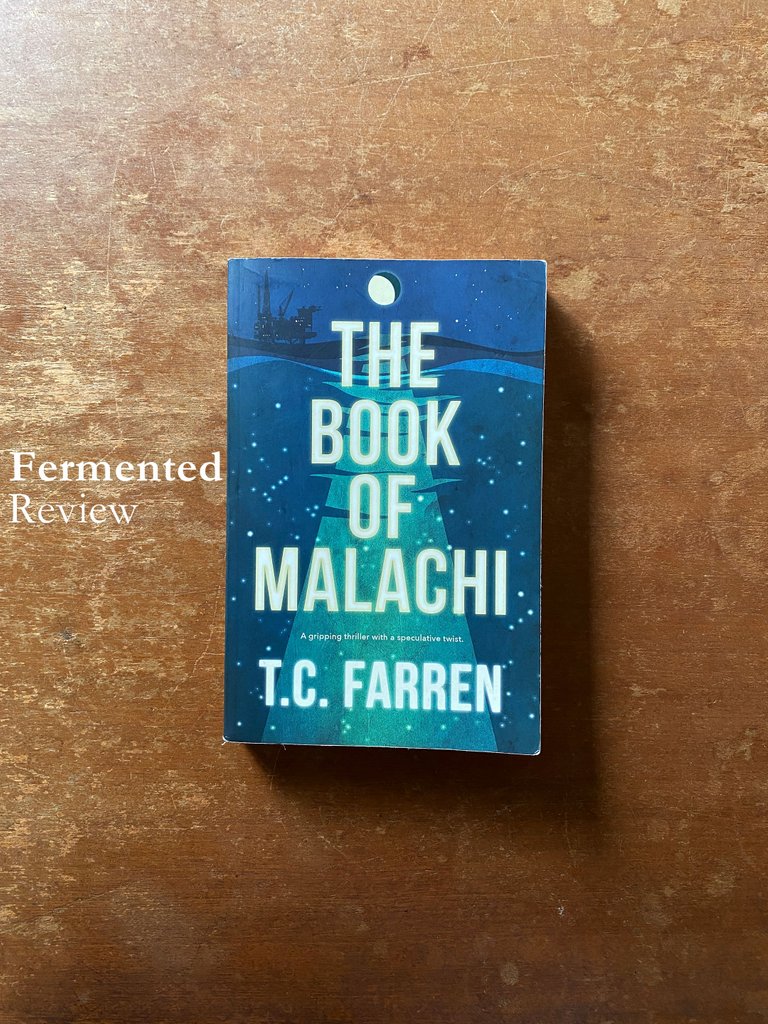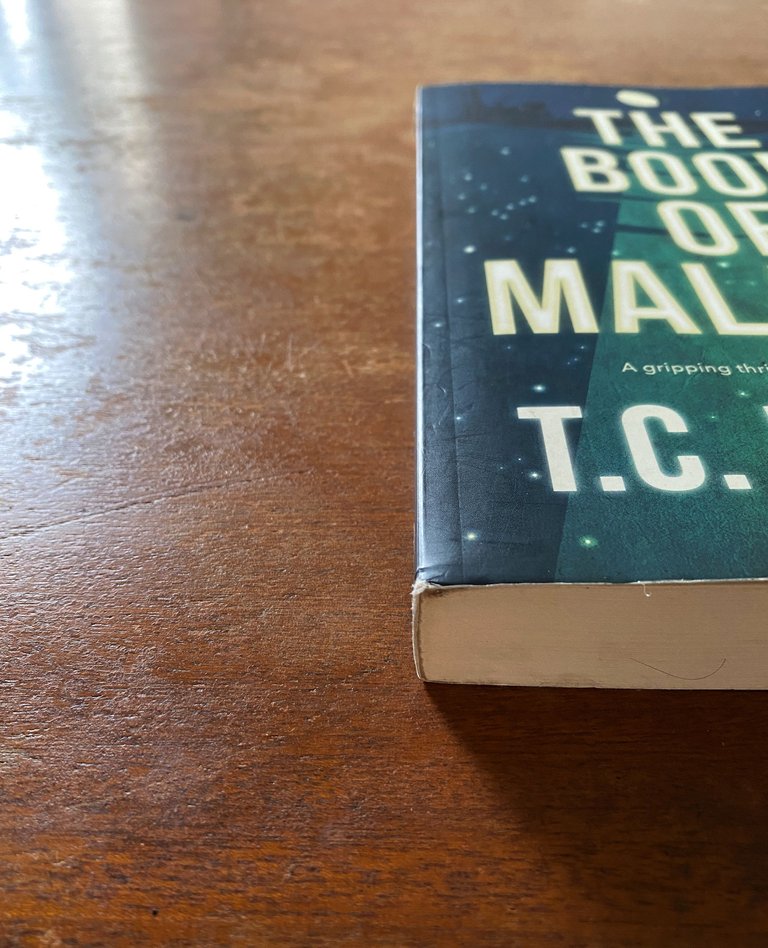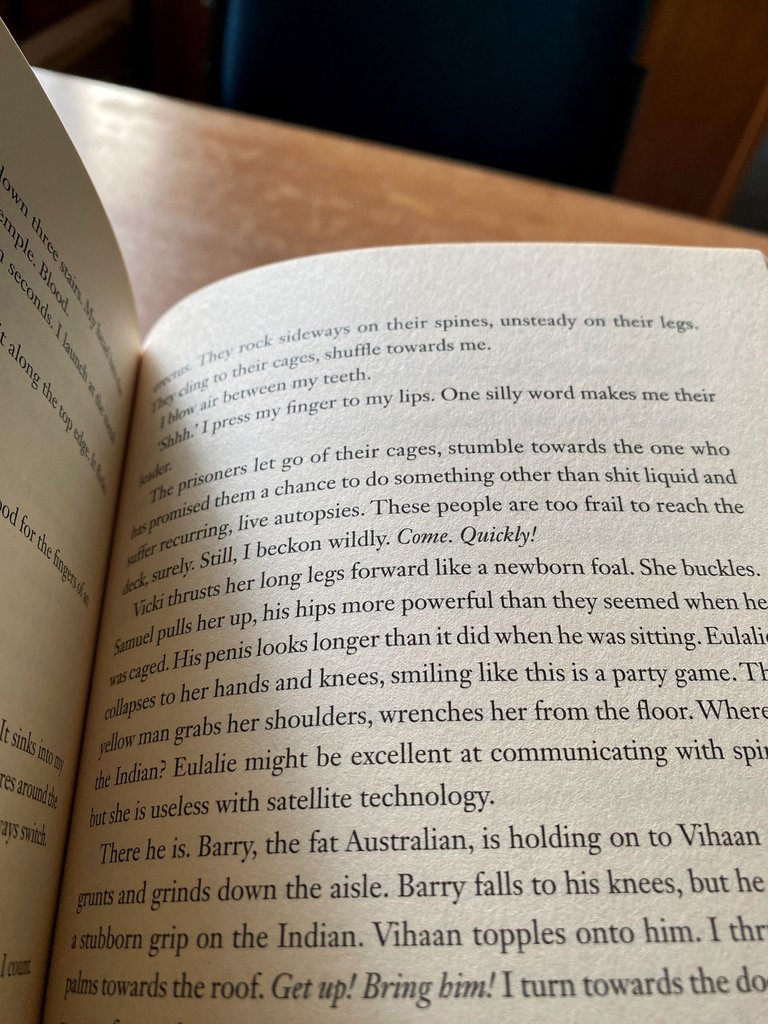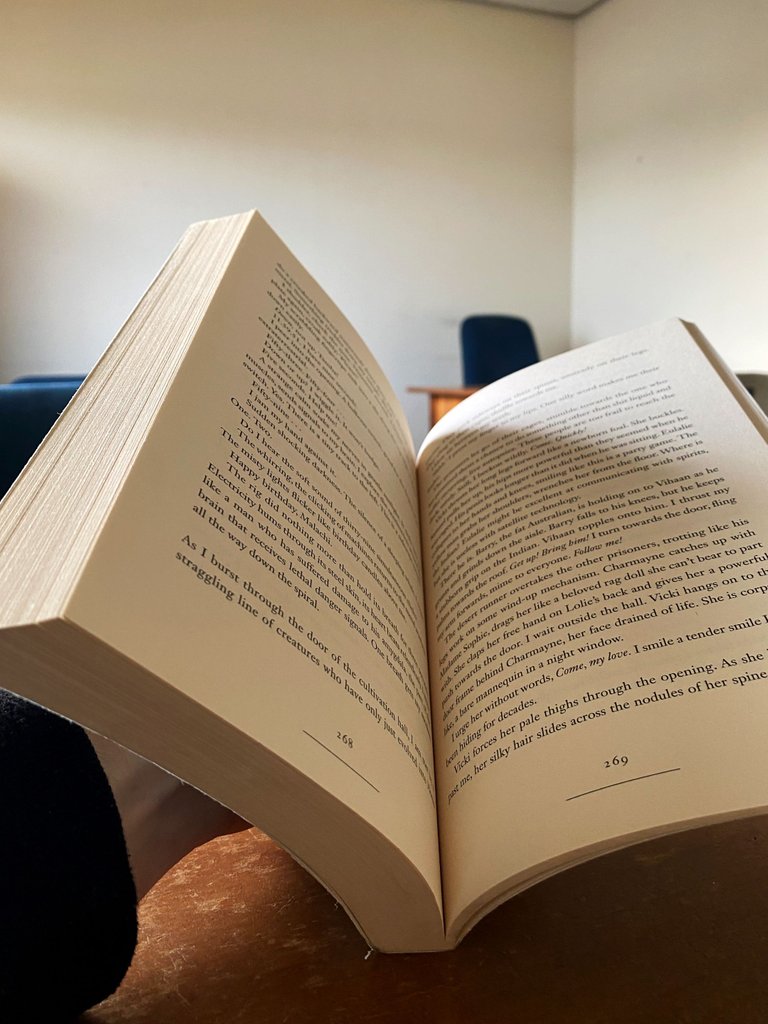The Book of Malachi - A Book Review
Introduction: What World? A Trolley Problem!
What world would you want to live in? This is an interesting question to ask, and one I think not enough people ask themselves. It can take the course of mere intellectual gymnastics; think, for example, Plato’s The Republic. Or it can have real-world consequences; think, for example, who you vote for in your elections and what policies drive these politicians. In between these two extremes, one might situate fictional accounts of worlds we might live in. Not in the sense of creating fantastic worlds far beyond our current one; rather, one that is close to home but with some fictional elements linked to it. In short, one can run with an idea in a work of fiction based on either mental gymnastics (e.g., Plato) or real-life politics (e.g., policies and laws). The novel, The Book of Malachi, written by Tracey C. Farren, can be read as inhabiting this exact space. Starting with a real-world problem or case, the author extrapolated it into a very interesting novel that might be read as dealing with a very important and problematic philosophical question:
In short, the book deals with a quintessential philosophical trolley problem, however, it uses what we might state as modern and relevant examples. (I will deal with this in more detail below.)
I say that the book is situated in the framework of the question of “What world do you want to live in?” because, in the end, the reader of this book is asked to make a simple judgment call: is this really the type of world we want to live in?
Note: This book review will contain spoilers, so if you plan on reading the book, please beware. But I will also give a more philosophical interpretation that might entice you to read onwards even if you do not plan to read this book.
The World of Malachi: The Messenger Without a Tongue
The main character in the book is Malachi, a youngish male who lost his tongue whilst living in a war-torn area in Africa, becomes as if it were the mute messenger that brings potential good news to the prisoners on an offshore drill. But before that, let me quickly summarise the story. (Again, SPOILERS AHEAD.)
Our main character, Malachi, who lost his tongue, is given the opportunity to get a “tongue transplant”. In exchange, he needs to work on an offshore drill for a couple of months by clipping the finger- and toenails of prisoners who are used to grow organs for rich clients. The premise of the book is a hefty one, one that might get you to read the book in the first place: An offshore drill is used to hold prisoners who are themselves used to grow organs.
As soon as Malachi enters the room in which the prisoners as held, his moral compass begins to sway the other way: Are they really prisoners? Is this the right thing to do? These are also people, despite their past. The previous person who did Malachi’s work was disposed of because they felt emotional feelings for a prisoner. Because Malachi is mute, the owners of the organ harvesting company felt that he might be a better fit; he would not be able to talk to the prisoners. Upon finding a cell phone with the ability to read aloud what he types; he becomes the messenger to which his name alludes. (Malachi literally means “my messenger”.) In this miraculous moment, where the mute begins to “speak”, he also forms the emotional relationships with the prisoners. But are they really prisoners? He wonders. Some of them are, but others are not. This fact, amongst others, presses upon him to give up the hope of the surgery that would have given him a tongue to sacrifice himself and free the prisoners. Some will die, he knows that beforehand but what is the alternative? There is none. Along the journey, he also finds out that his fellow crew members, also promised organs for either themselves or their family members, never received these promised goods. This merely added fuel to his already burning fire. Moreover, he also fell in love with one of the prisoners. Because why not add the element of love into the mix?
As far as I could tell, the only reference to the book of Malachi is in the name of the mute, who becomes this messenger for his “followers”. A memorable quote that reiterates this:
“Shhh.” I press my finger to my lips. One silly word makes me their leader.
Enter: The Trolley Problem
If you are not familiar with philosophical trolley problems, let me quickly summarize the whole idea. Imagine a train track that splits in two directions. In one direction, in which the train is heading, are five people tied to the train track. You, as a passer-by, sees this and can switch the tracks on which the train is going, because you are standing at the lever/switch. But if you switch the tracks of the train, the train will kill one person, who is unfortunately tied to the other train track. Hence, the philosophical-moral question: do you switch the tracks but in doing so being morally responsible for the one person dying? Or do you do nothing and what five people be killed?
The main problem, as stated above, is rather “clean” of what one might call situating and contextual factors. What if the five people are prisoners and the one is a child? Most people will probably then say no, there are no moral implications in not pulling the lever. The trolley problems thus become problematic as soon as you add contextual elements.
The Book of Malachi, according to me, reads as one long trolley problem. Is it morally permissible, Malachi might wonder, to kill these prisoners so that I might get a tongue, so that my colleague’s daughter might get a new heart? And so on. As Malachi’s initial behavior indicates, he felt it was morally permissible, why not? They were murderers. But as soon as more detail emerged from the prisoners themselves, he felt the moral compass inside of him shift. Rather than feel it was permissible, he felt the intense need to save them even if it meant that some of them would have been killed. This then becomes a second trolley problem he himself is faced with: Do I do nothing because it is impossible to change something like that without getting someone killed? Or, do I do whatever I can even if it means that some will die, including the possibility of his own death?
In both cases, Malachi chooses the “moral” way by choosing to help rather than be a passive onlooker. This eventually means that some will have died, but it was worth it.
Is This the World We Want to Live In?
The question I, as the reader, was left with at the end of the book was: Is this the world we want to live in? It is on our horizon. Artificial organs are already grown in pigs. But we are obviously faced with a host of problems that medicine still needs to solve before it becomes a viable option. The book challenges our minds to go to the morally impermissible area: why not use prisoners to grow these organs in? (The writer could have gone into an even more macabre and problematic direction: why not use the prisoners’ own organs? But then she would not have written this story. I digress.)
As a trolley problem, the book is a mediocre success. It was a fun read, one that took me way too long (due to other circumstances). But it reads quickly and might be one of those books you read in a couple of sittings. Some reviews online state the obvious problem: the blurb read way more interesting than the actual book itself. There are various gaps, too much focus on irrelevant things (which the author could have elaborated on in more detail), and so on.
Where the book, however, was a huge success (for me) was in the fact that she made one think, is this really the world we want to live in? It is surely one we are headed towards. Unbridled neo-liberalism/capitalism produces unfathomable amounts of wealth in the hands of few. What prohibits them from making a company such as depicted by the author in this book? Though provoking stuff, and as noted this is where this book really hits home.
Postscriptum, or Did He Survive?
The cliché, main character falls in love with the prisoner. They end their struggle with one getting hurt. The book ends before it reveals if they are all right? Add some crazy elements into it, the female character has suicidal tendencies, the male character does not have a tongue and is shot. It does not help with our insatiable desire to know if they ended up happily ever after. It might require another book to spell out this story, but it is how it ended. We as the readers are left in the author's position to finish the story for ourselves. Does this take away from the story itself? Not necessarily. But it feels to me that authors struggle to finish their own stories. Even someone like Stephen King, with the stunning book The Stand, I was left rather unsatisfied. The build-up of both The Stand and The Book of Malachi are intense, good, great, capable of holding the reader enticed the whole time, but the unfolding of the stories feels unfinished, rushed, almost as if the author did not really know how to end their own story. But who am I to say this to established authors?
In any case, I hope you enjoyed my first book review! This is also my first post in this community. So please let me know if I broke any of the rules or missed anything. In the future, I hope to review more books, even some more philosophical ones (think Albert Camus). If you find this book, give it a try and see if these thoughts also enter your mind. Maybe I took things too far.
Happy reading, stay safe!
The musings and thoughts in this post are my own; those that are not, are hyperlinked. As far as I know and could find with a quick Google search, I am the only one who made the link between this book and trolley problems. If someone else already made this connection, I am not aware of it. It would be interesting to know that someone else also made this connection! The photographs are also my own, taken with my iPhone.




I wasn't even ready for the ending, lol. It was building to a crescendo then it was a damb squib. Anyhoo, I think it does allow for the readers mind to juggle different ending scenarios.
Even my ending was not that good and felt forced haha. It just goes to show. And yes, so true!
Regardless of the clichés of the plot and characters, a book that leaves us with those questions is always welcome. Very good review. Regards.
Thank you so much, my friend. I really appreciate it. Indeed, open endings with lots of questions can be great! A little frustrating, but it is good to challenge one's mind a bit.